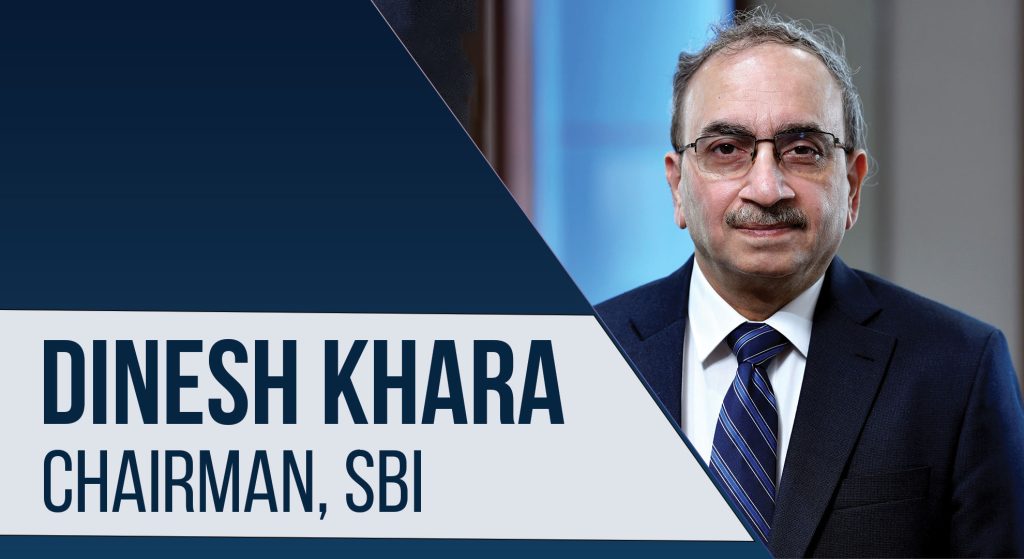
The RBI-led MPC announced a 50 basis point increase in repo rate on Friday in order to contain inflation. Here are the views of some of the leading BFSI stakeholders and economists on the central bank’s further tightening of monetary policy.
Dinesh Khara, Chairman, SBI: The RBI policy statement reaffirmed the commitment to bring inflation down further and ensure financial stability in markets. In principle, RBI from its vantage position has harmonized key measures, ensuring the economy remains cushioned to the maximum extent from the impact of inflation in everyday lives. The developmental measures are largely aimed at ensuring broad-based participation in G-sec and the foreign exchange market. The impact of the Bharat Bill Payment system is likely to play out over the medium term.
Rajni Thakur, Chief Economist, RBL Bank: Any mention of nature and quantum of intervention, to manage currency faced with huge capital outflows, didn’t find a place in MPC announcements. Nevertheless, given the growth-inflation outlook, further hikes towards 6% terminal repo rate seem imminent, even though the pace of hike will likely be softer going ahead. Continued ‘focus on withdrawal’ indicates further drawdown of excess liquidity as well, in which case, monetary tightening is far from over yet.
Vikas Garg, Head, Fixed Income, Invesco Mutual Fund: Continuation with withdrawal of accommodation signals more rate hikes to come as a healthy economy provides space. Overall, a more hawkish policy than the recent market expectations and reiterates the need to anchor inflation expectations. We expect market volatility to remain high with a fast-evolving global backdrop.
Madhavi Arora, Lead Economist, Emkay Global Financial Services: Bonds have sold off massively, as they were positioned for a softer policy led by media speculations. Banking stocks are up 1% on an average. INR has remained largely agnostic. We think we are near-peak RBI-hawkishness, led by falling risk premia of the entire commodity price complex and incremental rate hikes will be lower. While global disinflation is imminent, in one way (soft-landing) or another (recession), the price stickiness will make the disinflationary path non-linear in coming months. We maintain FY23 could see RBI’s policy rates terminating around 5.75%-5.90%. INR pressures are unlikely to dictate MPC’s policy decision materially.
Suman Chowdhury, Chief Analytical Officer, Acuité Ratings & Research: While a rate hike was given in the current context, it has been slightly higher than our expectations. What is noteworthy is that the central bank has not revised its existing growth or inflation forecasts despite indications of a global slowdown, recessionary conditions in the developed economies, and the moderation already witnessed in commodity prices. Possibly, it would like to go through more data points over the next two months before reviewing these forecasts. We believe that rate hikes going ahead will be moderate. For now, one can expect further deposit and lending rate hikes by banks, given the improved credit demand in the economy.
Churchil Bhatt, Executive Vice President, Debt Investments, at Kotak Mahindra Life Insurance Company: Given the global recessionary backdrop and its accompanying disinflationary impact, we believe policy rates in India will peak tad below 6% in this calendar year. In light of the same, further rate actions will be more calibrated and data dependent. Yield on benchmark 10-year Government Bond is expected to remain in the 7.10-7.40 band in the near term.”
Aditi Gupta, and Jahanvi, Economists, Bank of Baroda: Inflationary pressures are broad-based and remain uncomfortably high and above RBI’s upper tolerance level. We expect another 50bps rate hike in the current cycle. We expect the 10-year yield to be in the region of 7.50% at the upper end. We retain our headline CPI estimate at 6.5% in FY23, which is a tad lower compared with RBI’s forecast. This is because softening global commodity prices will be positive for domestic inflation. With increasing risks of a global recession, commodity prices including oil are likely to remain depressed.







